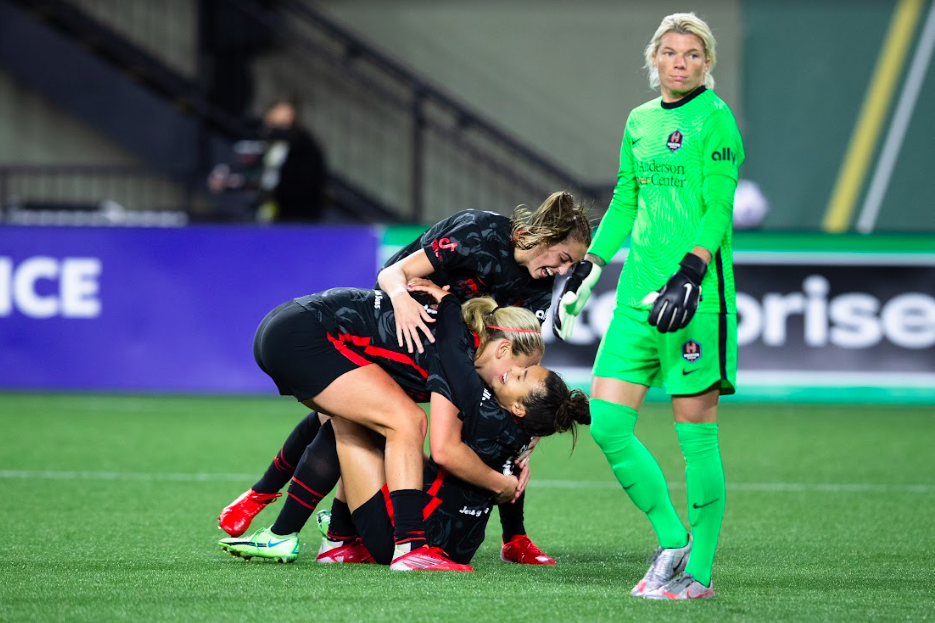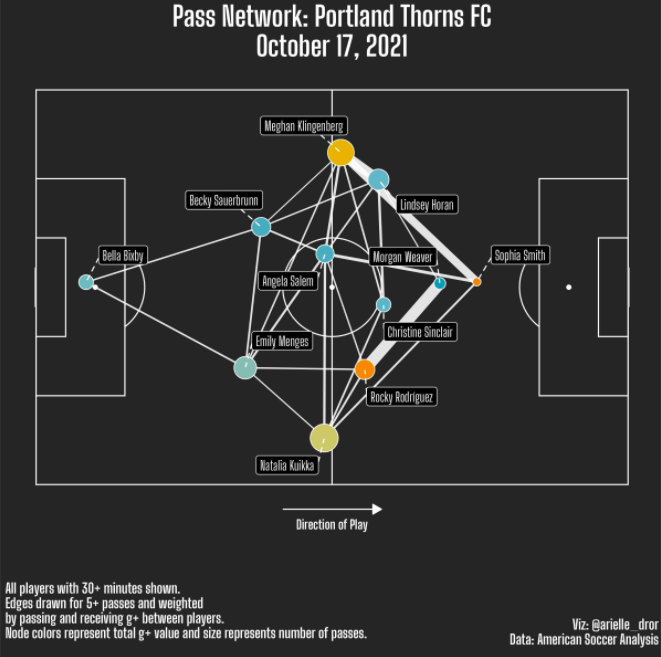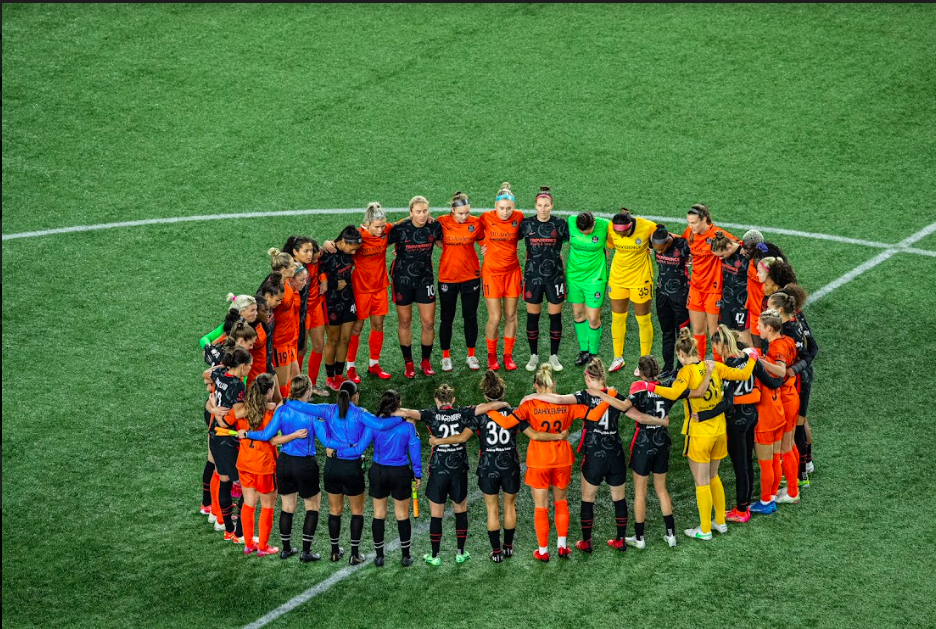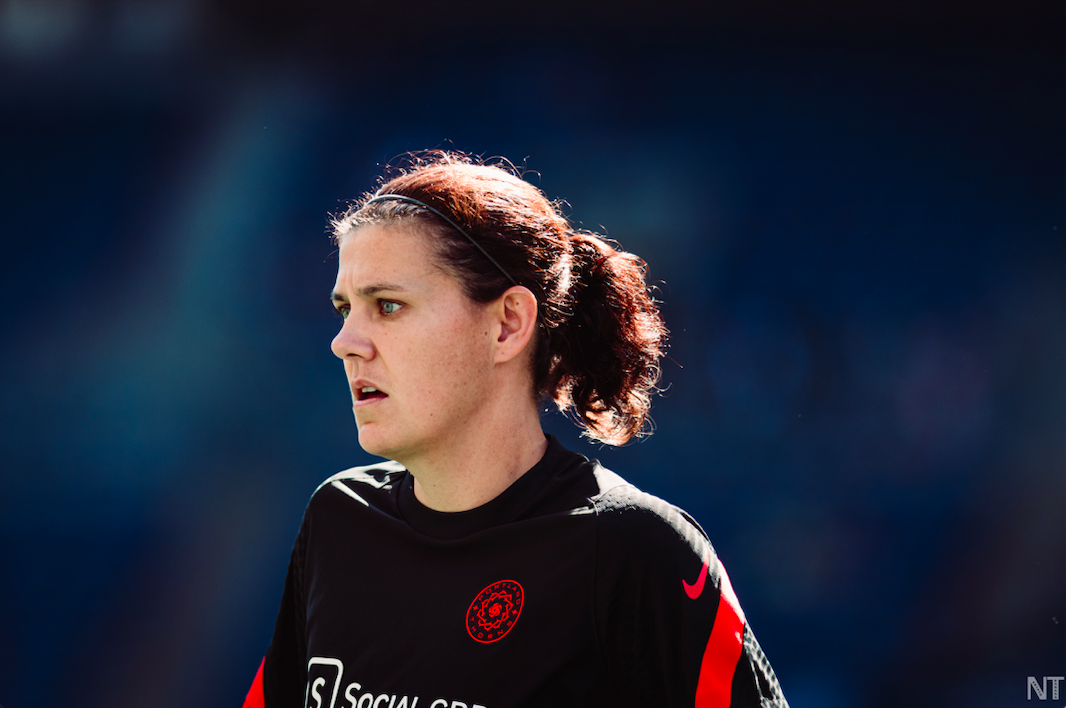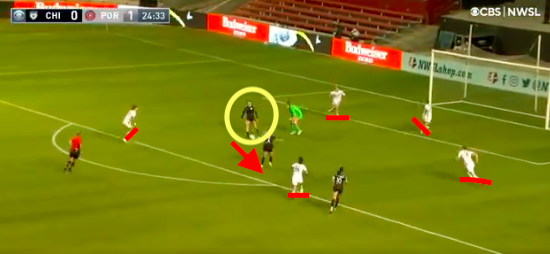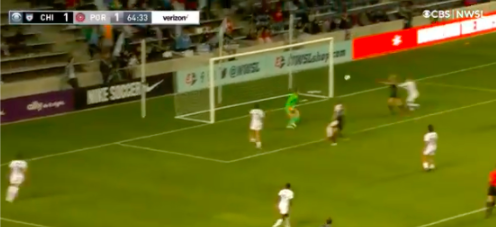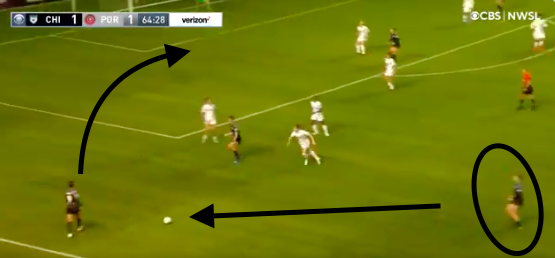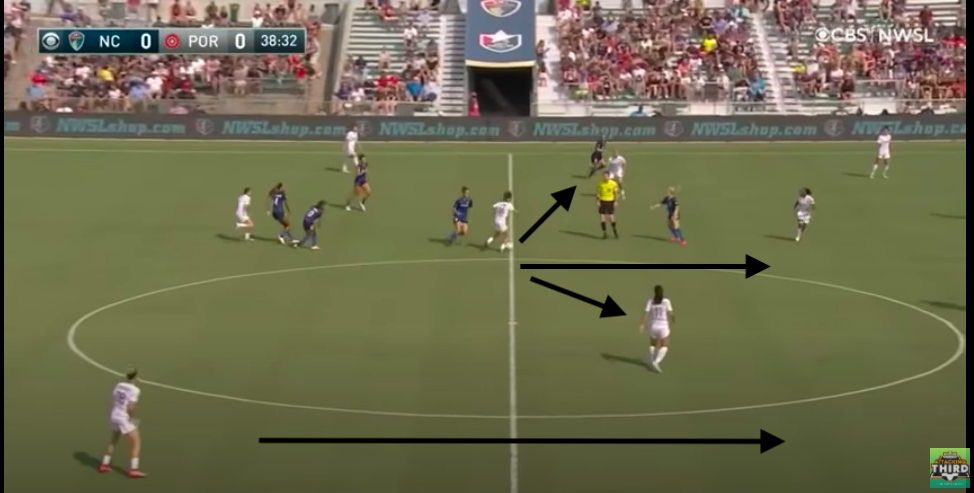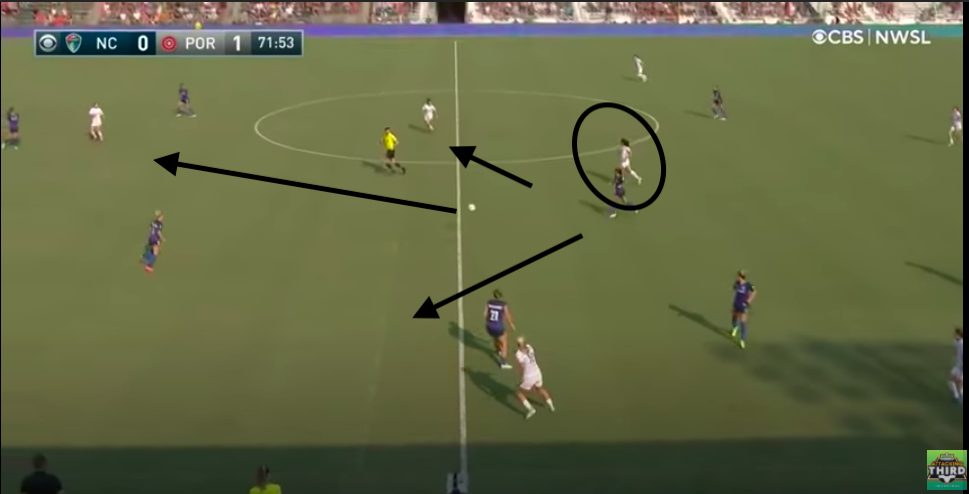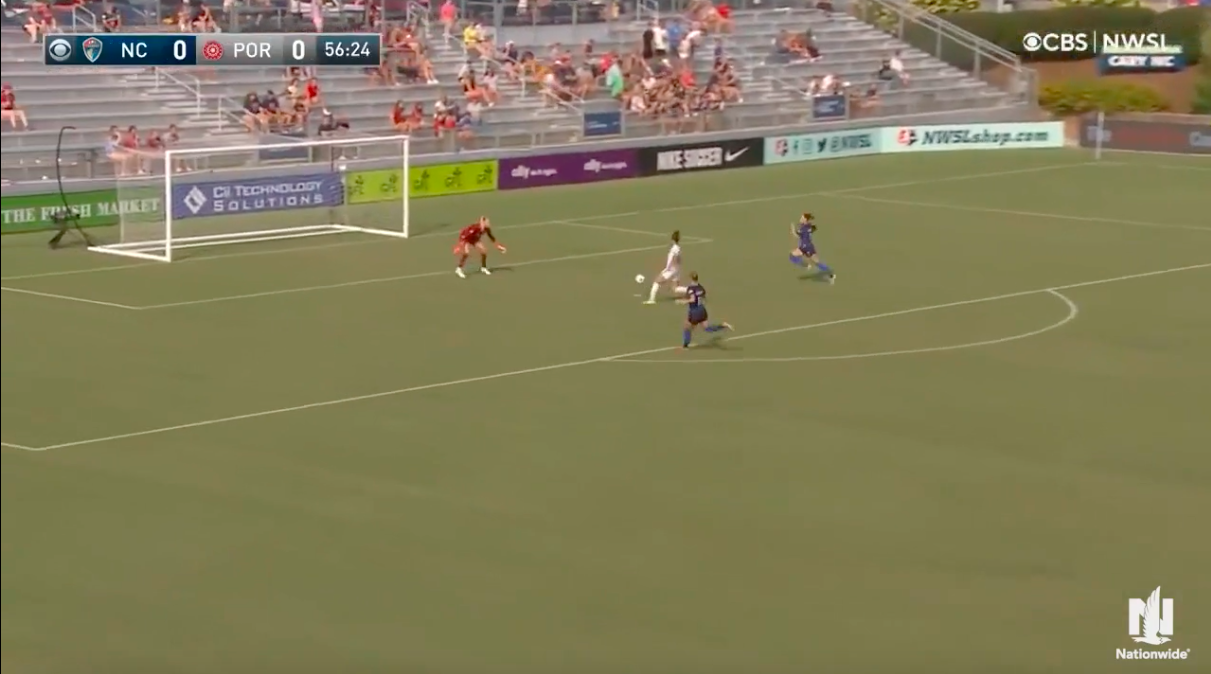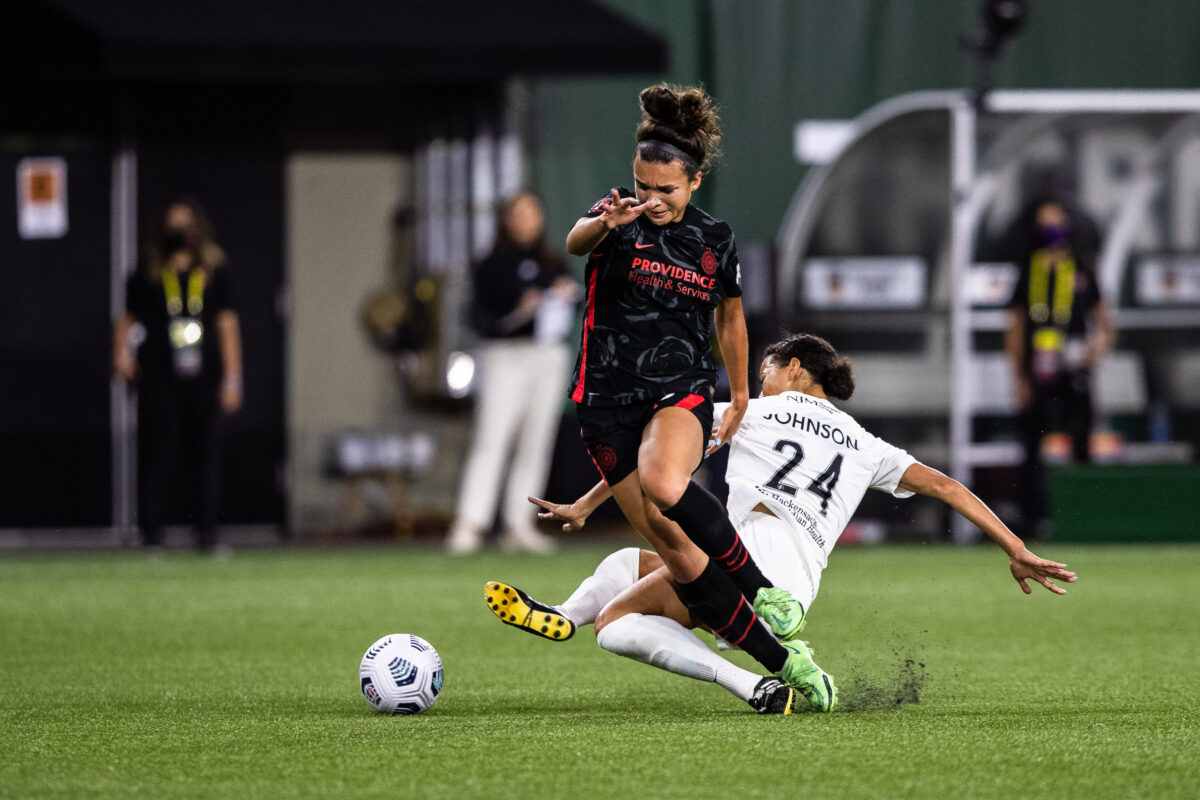The Thorns look very different than when they stepped off the field in 2021, and two games into a preseason tournament, they are still finding their footing. Without being too critical of the team, there are plenty of bright spots to take away from the inaugural Thorns versus San Diego Wave game.
Debuts!
Saturday night’s game marked the professional Thorns debuts of Abby Smith and Natalie Beckman. Both players appeared in the preseason games and showed new head coach Rhian Wilkinson that they had valuable skills. Although Beckman only played about 10 minutes coming in for Klingenberg, she looked confident on the wing as part of the Thorns’ five-back and should be an exciting prospect in the games to come. Smith has plenty of NWSL experience, most recently for the Kansas City Current, but had yet to make an appearance for the Thorns since signing mid-season in 2021.
In her inaugural game, Smith registered seven saves and a clean sheet, making her the fourth Thorns keeper to record a clean sheet in a Challenge Cup match. The decision to start Smith over Bella Bixby, Thorns No. 1, was a collaborative one between head goalkeeper coach Nadine Angerer, Bixby, and Smith. Head coach Rhian Wilkinson said post-game that it was Bixby’s suggestion to have Smith play so that Smith has the minutes and confidence to fill in when Bixby is unavailable. Smith also spoke highly of the Goalkeeper Union in Portland and how all keepers push one another and inspire greatness. With such a solid culture in goal, any of the Portland keepers should be able to control the backline.
Sophia! Smith!
Saying that Sophia Smith is good at soccer is probably the understatement of the year. Her technical skill and ability to get in behind the backline has already proven to be crucial to the Thorns’s attacking strategies. Sinking three out of three shots on target, Smith is lethal in front of goal. However, in the game against the Wave, Smith showed that she is more than just a pacey striker. In the run up to the Thorns’s lone goal, Smith was able to draw out three San Diego defenders to surround her, leaving both Natalia Kuikka and Christine Sinclair with plenty of space on the wings to send a ball in that Smith hit one-time deftly around Sheridan.
Post-game, Wilkinson had high praise for Smith. She cited that Smith not only has a high ceiling that she delivers on, but that she is able to quickly implement feedback. One thing that Smith and Wilkinson are working on is “when to go in behind defense on transition and when to hold back to create different types of scoring opportunities.” With the combination of skills she possesses, it is a no-brainer that Smith will be a crucial member of the Thorns this year.
Young players!
Sam Coffey, Yazmeen Ryan, and Meaghan Nally all got the start on Saturday. With Becky Sauerbrunn out after undergoing surgery to repair her meniscus, Nally has been able to slide into a starting role on the backline. She didn’t look out of place in the slightest alongside veteran defenders Emily Menges and Kelli Hubly, registering the highest number of touches and completed passes of the three.
Ryan and Coffey, alongside Hina Sugita, are working to rebuild the midfield that the Thorns lost in the offseason. Together, the two young players in their first full season with the Thorns have already impressed. As the holding midfielder No. 6, Coffey had nearly an 80% passing completion rate. She was able to exploit the wide open spaces left by the non-existent Wave midfield, and looked as though she controlled the field. As she gains more experience and confidence on the field, she will be a real force to be reckoned with. Finally, Ryan also worked hard in the midfield, completing several successful dribbles to bring the ball into the final third, playing in Smith. As both Sophia Smith and Ryan get more time together and their partnership solidifies, they should be a lethal duo on the left.
The Thorns go again tonight at home for their inaugural match against Angel City FC as they continue their run to secure their second Challenge Cup championship.

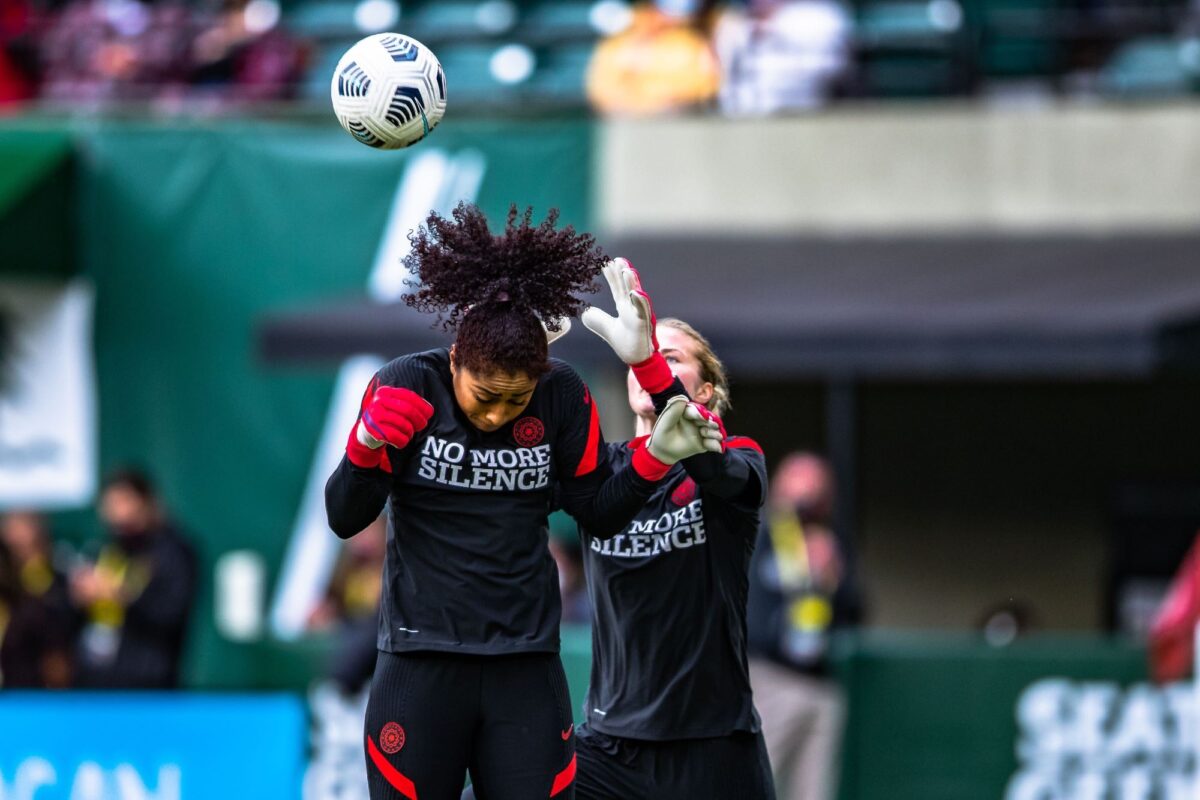

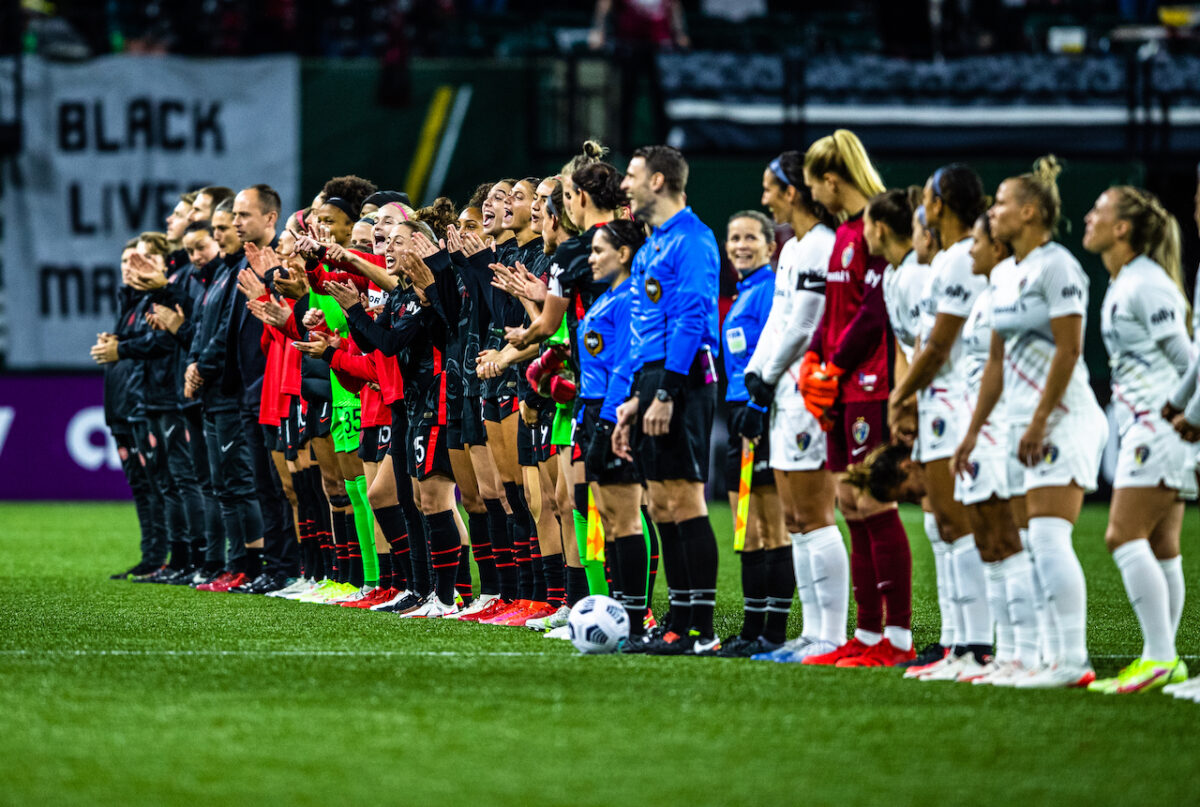

 Unlock with Patreon
Unlock with Patreon